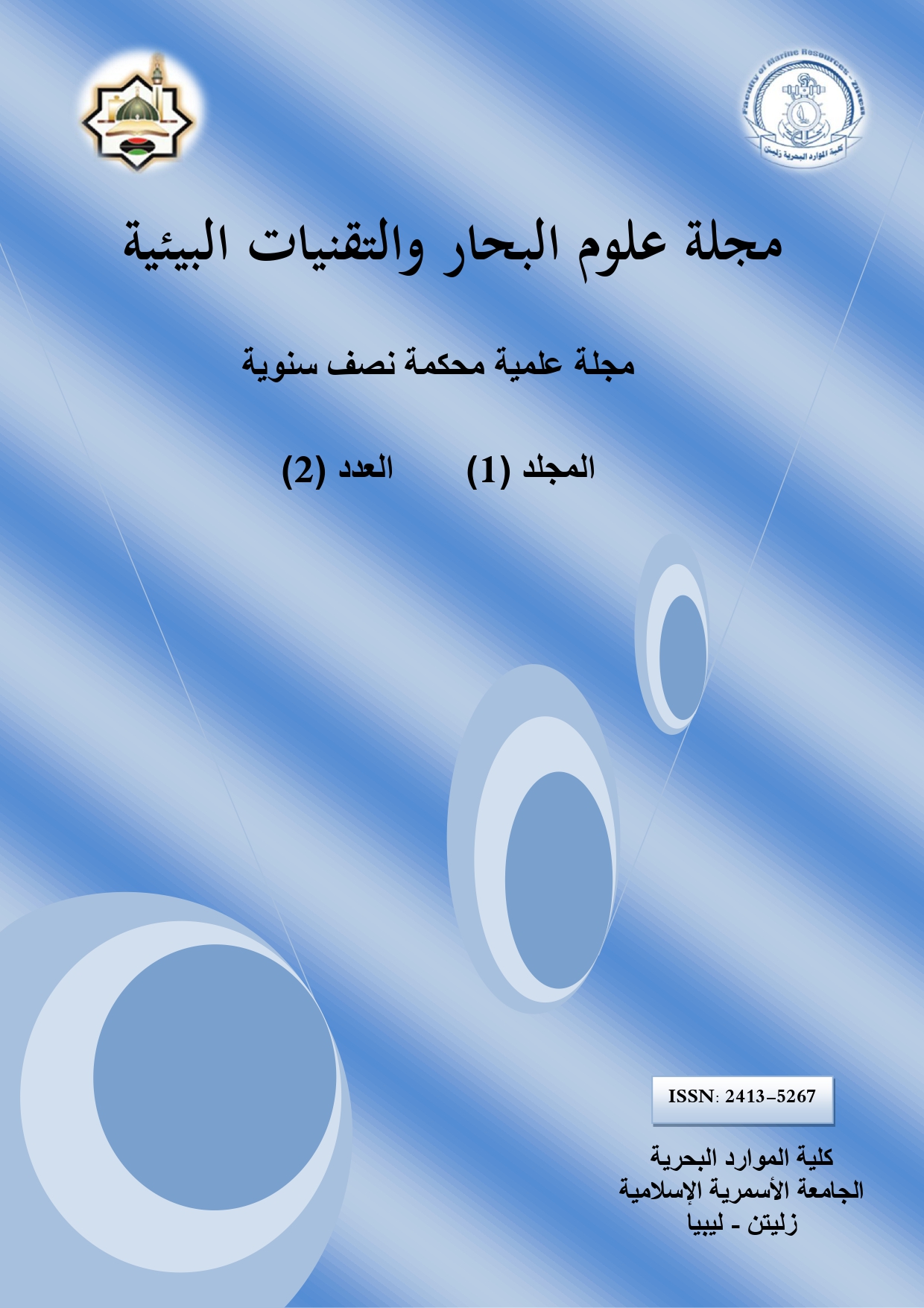النفايات البلاستيكية وآثارها على البيئة والإنسان والطرق الحديثة للاستفادة والتخلص منها
DOI:
https://doi.org/10.59743/jmset.v1i2.131الكلمات المفتاحية:
البلاستيك، النفايات، إعادة التدوير، بوليمرالملخص
للبلاستيك دور هام وحيوي في حياتنا المعاصرة وقلما تجد منتجا صناعيا يخلو من أحد أنواع البلاستيك إلا أن الحجم المتزايد والمتراكم من النفايات البلاستيكية وما تحدثه من ضرر على الإنسان والبيئة أدى إلى اهتمام متزايد في كثير من دول العالم لدراسة المشكلة. يعزى الضرر الناتج من النفايات البلاستيكية إلى احتوائها على مواد بوليميرية لا تتحلل بفعل العوامل الطبيعية سواء البيولوجية أو البيئية وكذلك احتوائها على مواد كيميائية مضافة لغرض تحسين خصائصها وتقليل تكلفتها. يزداد إنتاج الأنواع المختلفة من البلاستيك في العالم بشكل مطرد منذ عقود يصاحبه تطور مستمر ويستخدم جزء كبير منها لإنتاج السلع الاستهلاكية من التعبئة والتغليف والمنتجات قصيرة الأجل الأخرى ويجد ما يقرب من نصف المنتجات البلاستيكية طريقه كنفايات. يتم انتتاج عدد من البوليمرات في ليبيا مثل البولى فينيل كلوريد والبولي إثلين والتي تدخل في صناعات بلاستيكية عديدة بالإضافة إلى عدد من البوليمرات والمنتجات البلاستيكية المستوردة من الخارج. الطرق التقليدية للتخلص من النفايات البلاستيكية والمتمثلة في الحرق والطمر وإلقائها في البحار والمحيطات تسبب أضرار جسيمة للكائنات الحية والبيئة وظهرت عدة طرق حديثة للتخلص والاستفادة منها والتي تشمل إعادة التدوير وإنتاج الطاقة واستحداث البديل لبعض المنتجات البلاستيكية مثل البلاستيك الحيوي. دلت التجارب الناجحة في عدد من دول العالم على أهمية إقرار تشريعات وقوانين خاصة بالتعامل مع النفايات البلاستيكية وتشجيع المستثمرين في مجال إعادة التدوير وانتتاج الطاقة منها والتوعية والدور الهام الذي يلعبه المواطن في المساهمة للحد من مخاطرها. تهدف هذه الدراسة بالتحليل تناول أهم الجوانب المتعلقة بالنفايات البلاستيكية وآثارها على البيئة والإنسان والطرق الحديثة للاستفادة والتخلص منها أو التقليل والحد منها واهية توعية المواطن بها وبالتعامل السليم معها. تم كذلك إجراء استبيان حول المواد البلاستيكية شاركت فيه الفئات المختلفة من المجتمع وتبين من خلاله أنه يوجد مؤشر جيد حول الوعي لدى المواطن بمفهوم البلاستيك وأهميته وآثار مخلفاته الضارة على البيئة والإنسان.
المراجع
قائمة المرجع العربية
مجلة الخط الاخضر (2012). ألمانيا تبدأ انتاج الوقود من النفايات البلاستيكية. [رابط الموقع على الشبكة http://www.greenline.com.kw].
محي الدين، لبنية (1999( .البلاستيك ودرجة تلويثه الأغذية. مجلة المعرفة، العدد 44.
قائمة المرجع الأجنبية
Al-Salem S., Lettieri P., and Baeyens J. (2009). Recycling and recovery routes of plastic solid waste (PSW): A review. Waste Management, 29(10): 2625–2643.
ECE (European Commission Environment) (2011). Plastic Waste: Ecological and Human Health Impacts. Science for Environment Policy In-depth Reports.
Farag M.G. (2010). Market study: Plastic industry in Libya. Italia Instituto Nazionale per il Commercio Estro.
Hopewell J., Dvorak R., and Kosior E. (2009). Plastics recycling: challenges and opportunities. The Royal Society Publishing, 10.1098/rstb.
Ingle R., Masal R., and Gargade A. (2014). Obtaining Fuels from Plastic Waste. International Journal on Recent and Innovation Trends in Computing and Communication, 2(4): 2321-8169.
Markus K., David G., Andreas P., Cecilia H., and Ulrika D. (2014). Everything you (don’t) want to know about plastics. Report by; Aturskyddsforeningen.
Rudolph D. (1975). Additives in Plastic. Environmental Health Perspectives, 11: 35-39.
Saharan B. S., Ankita, and Deepansh (2012). Bioplastics-For Sustainable Development: A Review. International Journal of Microbial Resource Technology, 1(1):11-23.
SPI Resin Identification Code. [Available on: http://www.plasticsindustry.org].
التنزيلات
منشور
إصدار
القسم
الرخصة
الحقوق الفكرية (c) 2015 مجلة علوم البحار والتقنيات البيئية

هذا العمل مرخص بموجب Creative Commons Attribution 4.0 International License.









